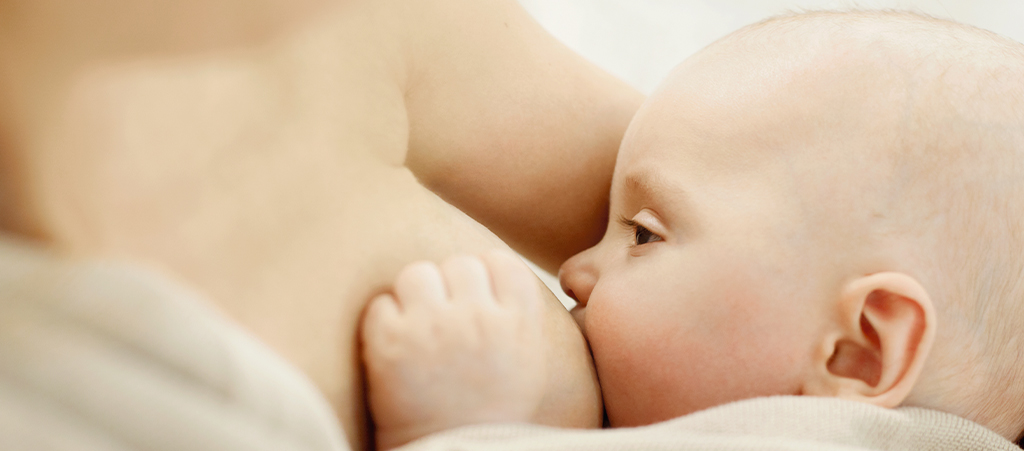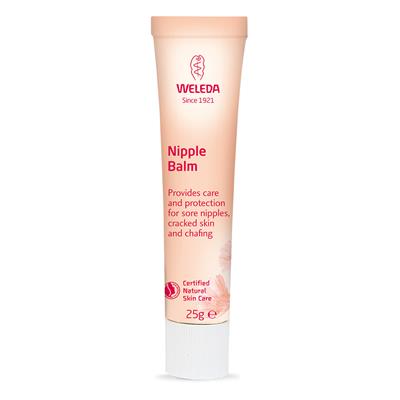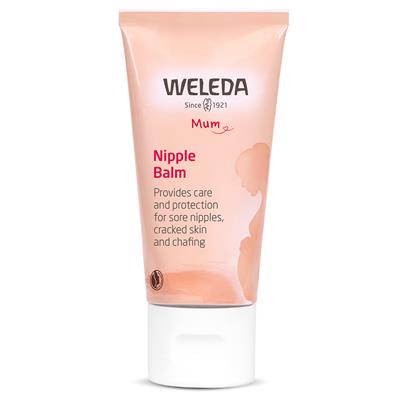
Top Tips For Breastfeeding
A definitive guide for breastfeeding with expert advice from a midwife18 July 2022
Breastfeeding is a crucial chapter in the lives of many families, and one you may be about to start yourself. It’s a truly special time when a mother and baby are together laying the foundations of their relationship.
But it isn’t always plain sailing! Today’s new mums are caught between a shiny, social media perspective on breastfeeding on one hand, and overblown tabloid taboo on the other. We've enlisted midwife, mum and mother and baby consultant specialising in breastfeeding, Sharon Trotter, to share her clear and comprehensive expert tips to help you become a successful breastfeeder.
Keep scrolling to discover our Breastfeeding Report which closely inspects the realities of breastfeeding in the UK, and find out more about World Breastfeeding Week.
Top tips for successful breastfeeding
Getting used to breastfeeding takes time. It is much easier if you have watched other mothers feeding and if you give yourself plenty of time to find the most comfortable position for you and your baby. Lack of support, conflicting advice, poor information and negative attitudes from others are all too common. To succeed, you will need plenty of support and encouragement and lots of practical tips.- Get your partner involved as their support is vital to your success.
- Surround yourself with positive support from friends and family.
- Go to a breastfeeding workshop in your area.
- Get help with positioning and attachment from the start – this does not mean ‘hands on’ manipulation of mother and baby, just one-to-one explanation and reassurance.

- Be inventive – there are 360° of attachment so finding the perfect position for you and your baby may take a while and a certain amount of trial and error. You will know when you have achieved this because feeding will be comfortable.
- Breastfeeding should not hurt – if you are in pain get help from someone who really understands breastfeeding. To have a friend or a breastfeeding counsellor who is experienced in breastfeeding would be a great help at this time. Peer support groups (search online for one in your area) can be really helpful.
- If your nipples do become sore:
- correct your positioning and attachment to prevent any further damage
- rule out tongue-tie as this could be the cause
- once baby is well-attached the nipples should heal naturally, but seek help if the soreness persists and try a natural nipple cream to protect against cracking such as Weleda’s Nipple Balm.
Nipple Balm 25g
Item No.
205027
£8.95
Add to basket
Nipple Balm 50g
Item No.
205030
£12.95
Add to basket
- Listen to your baby’s cues - breastfeeding can only work when it is baby-led.
- Baby-led feeding (unrestricted) should always be encouraged, especially overnight (when hormone levels are higher), as this helps to promote and maintain a steady milk supply.
- Stimulate your breasts - just the smell, sight and touch of your baby will help to do this. Breast massage can be very useful in the early days when engorgement is common.
- Look after yourself by eating well and incorporating food and drinks that are known to boost your milk supply. Long before prescription drugs were available women used natural herbs. Over 400 herbs are used by mums around the world to help with milk supply and breastfeeding problems. This includes common foods like garlic, oatmeal, nuts, chickpeas, fennel, ginger and herbal teas.
- It takes around six to eight weeks for the delicate balance of milk supply-and-demand to be established, so chat to a lactation consultant if you feel you are struggling. Don’t be surprised if your baby loses weight initially, this is perfectly normal and to be expected. Your baby should soon reach their initial birth weight followed by regular weight gain, although this will vary from week to week. Breastmilk is a perfectly balanced food for your baby.

- Seek out local cafes and places that actively support breastfeeding, so you can feel confident and relaxed when you’re out and about. It’s a great way to meet other mums.
- Try not to be separated from your baby - close contact (not necessarily skin-to-skin) greatly helps to stimulate milk-producing hormones. Baby-wearing (using slings or carriers) will have the same effect.
- As long as your baby is waking up for feeds, taking feeds well and having wet and dirty nappies, you can be reassured that they are getting enough milk
- It is not unusual for a baby to feed between 12 and 20 times a day in the early weeks, but this will settle down – promise!
- Above all enjoy breastfeeding – with each feed you will get a rush of endorphins, which are basically ‘happy hormones’. This makes you and your baby feel good and is nature’s own stress-buster
Why should you try our Nipple Balm?

Nipple Balm is a natural ointment that provides care and protection for sore nipples, cracked skin and chafing. This neat little tube of soothing magic has been developed by experienced midwives and pharmacists, and is formulated using natural and organic ingredients ideally suited to delicate skin – therapeutic plant extracts, nourishing plant oils and protective waxes – and dermatologically-tested as suitable for sensitive skin.
Find out more
Shop Nipple Balm
Additional resources for advice on breastfeeding
Six benefits of breastfeeding for your baby
- The composition of breast milk perfectly adapts to your baby's needs. The first milk, colostrum, is full of antibodies, high in proteins and designed to colonise your baby's gut with friendly bacteria aiding healthy digestion.
- Breastmilk offers excellent protection against allergies and helps strengthen your baby’s immune system.
- Breastmilk is ready for your baby, at the right temperature, whenever you need it!
- Breastfed babies are less likely to suffer from infections, tummy upsets or constipation (1).
- Sucking at the breast is good for the development of baby’s jaw, teeth and the facial muscles used later for speech.
- Sucking on a bottle is much easier but does not promote optimal muscle and tongue strength (2).
Six benefits of breastfeeding for you as a mum
- Breastfeeding helps the uterus to contract after delivery.
- Women who breastfeed have a lower risk of breast cancer, ovarian cancer, uterine cancer and osteoporosis later in life (3).
- Breastfeeding provides mum and baby with a natural high due to the endorphins in breast milk.
- Breastfeeding mums usually find it easier to lose unwanted pounds they may have gained as a natural course during pregnancy.
- Breastfeeding mums are less likely to suffer from postnatal illnesses (4).
- Breast milk is free and it's eco-friendly too!
References:
(1) Oddy W H (2001). Breastfeeding protects against illness and infection in infants and children: A review of the evidence. Breastfeeding Review. 9 (2): 11-8. Palmer B (1998).(2) The influence of breastfeeding on the development of the oral cavity: A commentary. Journal of Human Lactation 14:93-8.
(3) https://www.unicef.org.uk/babyfriendly/news-and-research/baby-friendly-research/maternal-health-research/ Hanzak, Elaine (2015).
(4) Another Twinkle in the Eye: Contemplating Another Pregnancy After Perinatal Mental Illness (p156).





